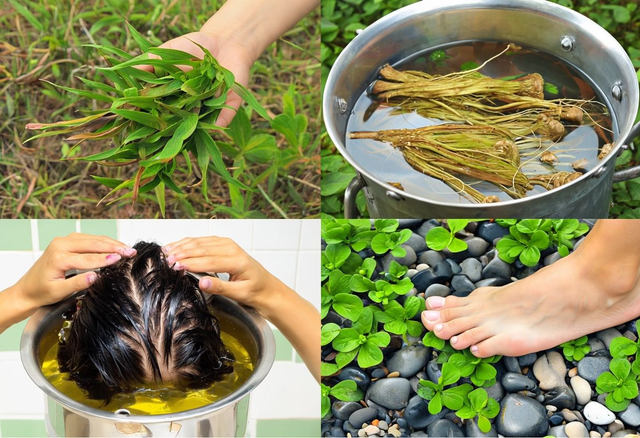
Crabgrass (Digitaria sanguinalis): A Resilient Plant with Surprising Medicinal Uses
Paula
- 0
- 9
Crabgrass, often seen as a backyard nuisance, is a surprisingly beneficial herb with a long history of use in traditional medicine. Far from being just an invasive weed, this hardy plant offers a variety of natural health benefits that can support digestion, reduce inflammation, aid kidney function, and even contribute to cardiovascular and immune wellness.
1. Natural Anti-Inflammatory Support
Crabgrass contains plant-based compounds that help reduce inflammation. It may be helpful for easing sore joints, muscle aches, or throat irritation. Drinking crabgrass tea is a gentle way to soothe inflammation throughout the body.
2. Supports Kidney Function and Detoxification
Known for its diuretic properties, crabgrass helps promote urination and flush out toxins. This makes it a supportive herb for kidney health and natural detox routines.
3. Promotes Healthy Digestion
Crabgrass has been traditionally used to relieve indigestion, bloating, and mild constipation. It acts as a mild laxative and digestive aid, supporting regularity and gut comfort when consumed as tea.
4. Soothes Skin Irritations
Applied externally as a poultice, crabgrass may help reduce redness, itching, and inflammation from minor cuts, insect bites, or rashes. It’s a simple and natural skin remedy.
5. Respiratory Relief
Crabgrass tea is used to help ease nasal congestion, throat discomfort, and mild respiratory irritation. Its anti-inflammatory effects make it a good choice during cold or allergy seasons.
6. Cooling Support During Fevers
The tea made from crabgrass has natural cooling properties, which can help the body regulate temperature during a fever and provide relief from chills or sweating.
7. Rich in Antioxidants
Crabgrass offers a good supply of antioxidants that help the body combat oxidative stress. These compounds can support long-term wellness, healthy aging, and improved skin condition.
8. Blood Sugar Balance
Some traditional uses and early findings suggest that crabgrass may help stabilize blood sugar levels, making it of interest to people managing diabetes or metabolic concerns.
9. Immune System Boost
Thanks to its antioxidant content and natural compounds, crabgrass may help the immune system stay strong and responsive, particularly when consumed regularly as a tea.
10. Cardiovascular Health Support
Crabgrass may help promote healthy blood pressure and better circulation. Its relaxing effects on blood vessels can support overall cardiovascular well-being.
11. Easy Ways to Use Crabgrass
- For internal use: Boil a handful of fresh crabgrass leaves and stems in 2 cups of water for 5 minutes. Strain and drink once or twice a day.
- For external use: Crush fresh leaves into a paste and apply to irritated or inflamed skin. Leave on for 20–30 minutes before rinsing.
Final Thought: A Weed Worth Keeping
Instead of pulling crabgrass out of your garden, consider its healing potential. This overlooked plant offers accessible, natural ways to support your health and well-being—without needing synthetic products. Whether you drink it as tea or apply it as a poultice, crabgrass is more than just a weed—it’s a wellness ally.


